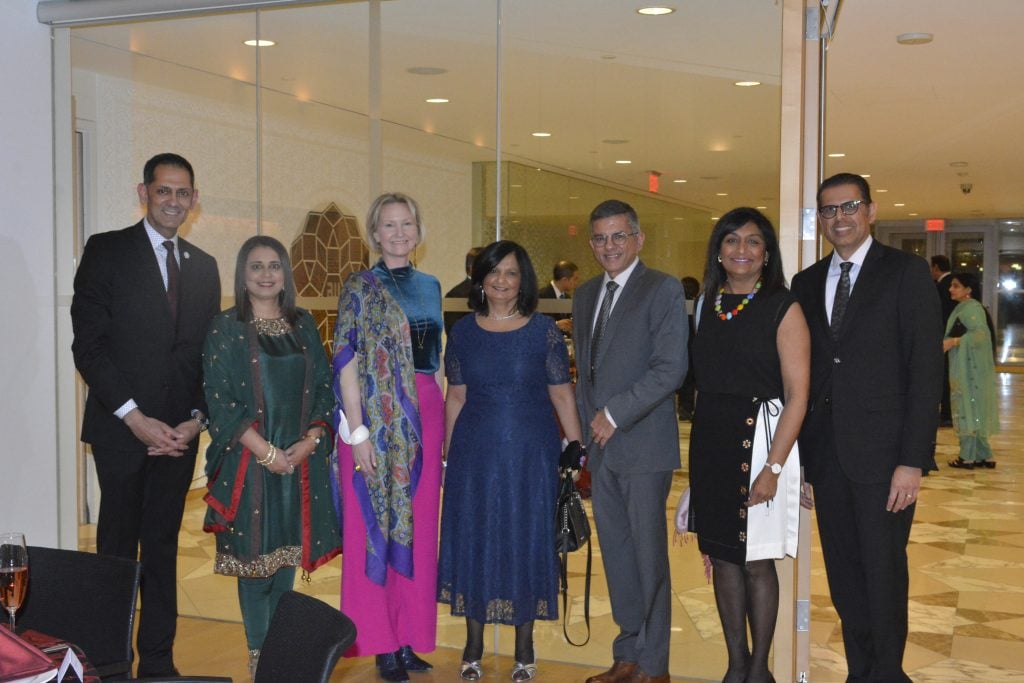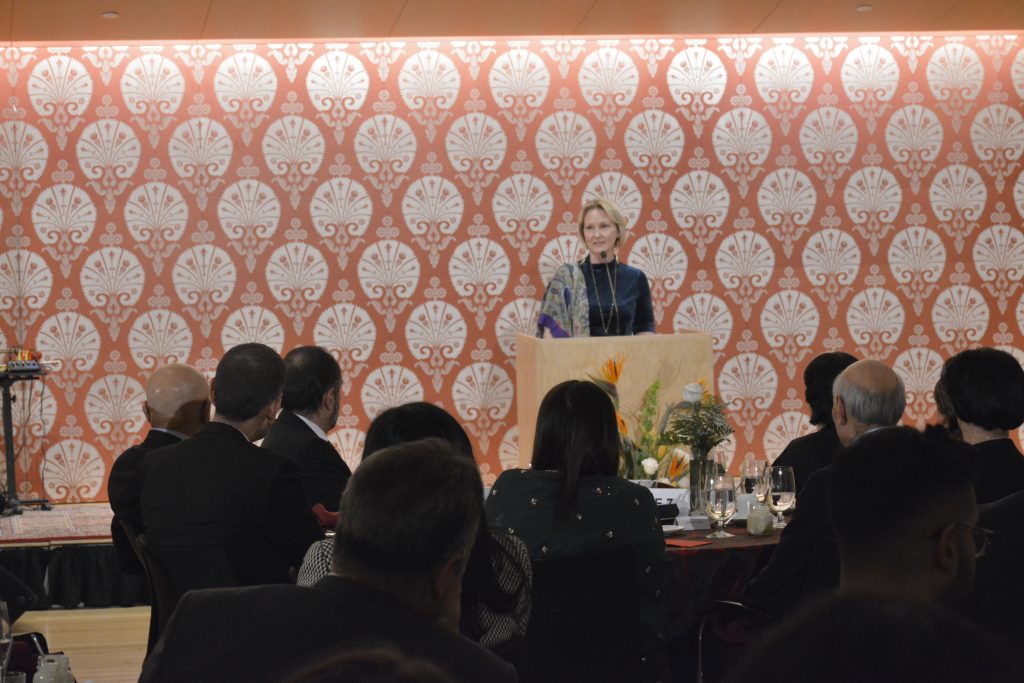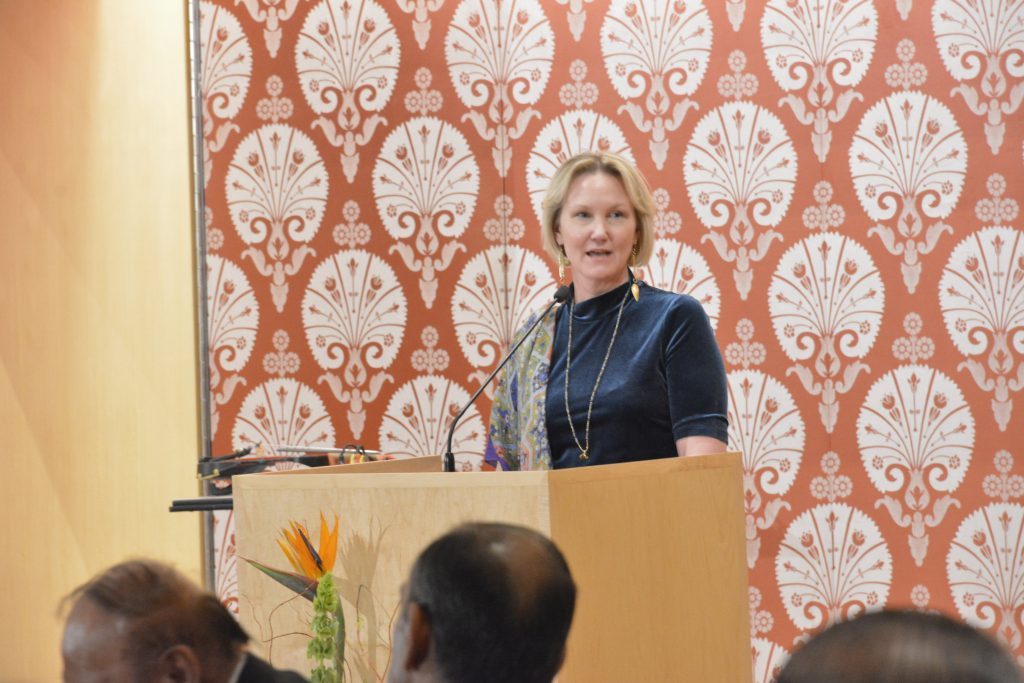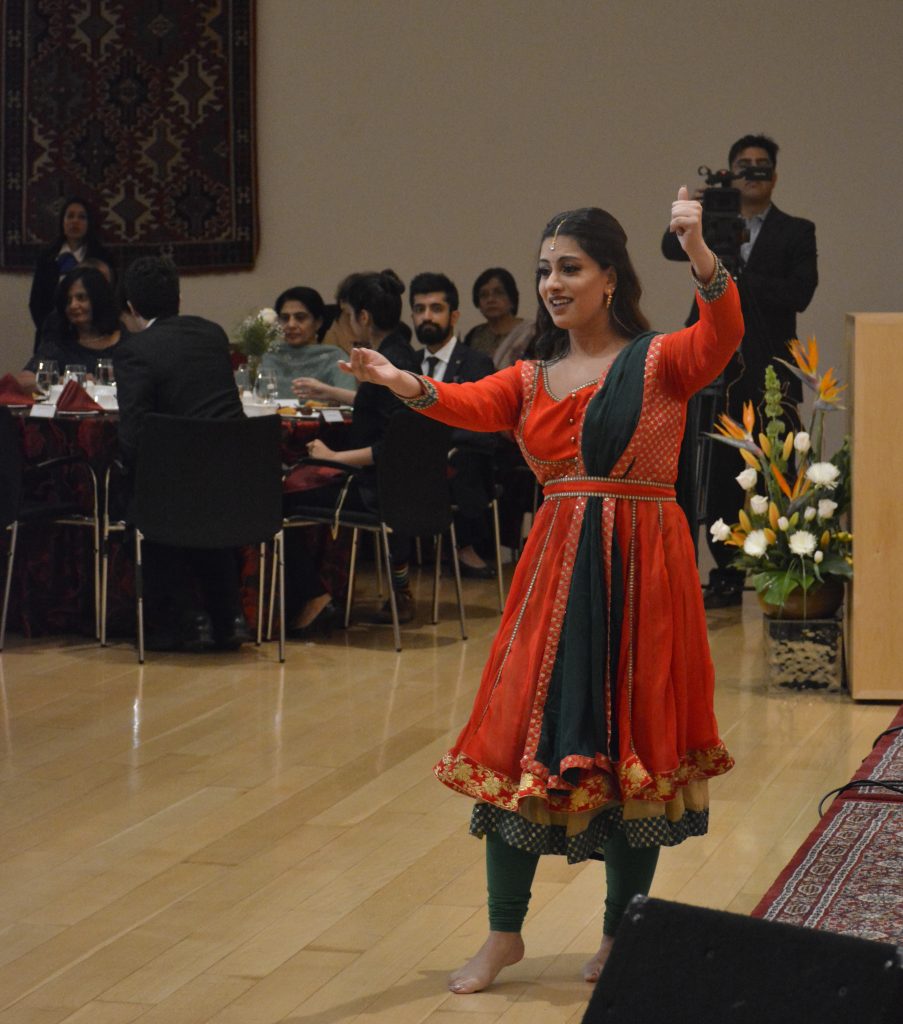Where Do We See the Global Centre for Pluralism in the Coming 10 Years?
The following is excerpted from remarks by Meredith Preston McGhie, Secretary General, made at the Aga Khan Council Leaders’ Dinner in Toronto on February 22, 2020.
To make the idea of pluralism understood and valued worldwide, people must see its reflection in their everyday lives. They must see pluralism in the choices that they make and not as a distant ideal, or academic theory. Too common today we see a narrowing of narratives and perspectives that do not enable people to see how diversity positively shapes their world.
For us to be convincing, we must acknowledge that living and breathing pluralism every day is not simple.
It is easy to respect difference from afar, to respect someone’s identity if it does not challenge you to rethink your own choices and perspectives. However, for us to be genuinely plural as a society, we need to allow ourselves to be uncomfortable, to face the natural inherent tensions in the diversity in our society, work through these, and recognise that we come out the other side as a stronger, more peaceful and sustainable society. In these uncomfortable spaces, true learning and transformation emerge.
We live in an age of division, of inequality and fear. The challenge we face has never been greater. There is a genuine global social crisis around how our governance and political systems work (or do not work, more importantly) for large portions of the population. This age of anxiety, of a loss of faith in systems, has manifested itself in nationalist policies in India, in the rise of populism in the US and Europe, and in the pitting of “industry” against the rainforest and its indigenous guardians in Brazil.
I witnessed this firsthand as a peacemaker. At the core of all the conflicts I mediated was a breakdown in respect for the ‘other’, and an inability to see how differences could coexist peacefully, even strengthen one another.
Against this troubling backdrop, it is imperative that we are proactive, practical and convincing. We know that the value of positively managing diversity is high and that, truly, it is at the foundation of any social system.
To make this argument, we need to model positive results.
We need tools and we need strong evidence, and we need to reach out, build bridges and engage in dialogue.
The Centre’s Role
We see pluralism not as a specialised subject but as a part of the fabric of all things – how we govern, how we educate our young people, how we represent ourselves and our society in the media, how we resolve conflicts, how we understand our histories, and how we reconcile with our past.
We take a systems approach – looking at broad areas where we can have an impact on the issue, while at the same time seeking to root this work in local, practical impact.
One of the first challenges we face with the issue of pluralism, is how do we measure it? How can we quantify how a society is managing their diversity, what areas are going well, and where gaps might lie? How can we be rigorous in understanding where societies are doing less well and whether this may be leading them down a dangerous path towards violence or conflict?
With this in mind, the Centre has been developing a measurement tool. A tool to measure inclusion, exclusion and belonging in society. We call it the Pluralism Index. Our vision is that the Index could be run in 100 or more countries around the world, generating every two years a report card for countries to evaluate how they are progressing in terms of managing their diversity. And to compel nations to take action.
The Index can be a tool for governments and civil society alike, to support reform and changes, as well as critical discussions and dialogue around how a society is making its choices.
The tool could be useful for administrations at the city level to look at how inclusive cities are being developed, in universities to measure how diversity is managed across a campus, or in peace processes, as a way to get parties to a conflict to commit to a positive approach to diversity as part of their post-peace agreement commitments. There are a range of exciting possibilities.
A second challenge that we are taking on is that of education. Education systems are where young minds are shaped to be engaged and critically-minded citizens. How can we go beyond what we teach in a curriculum and consider how we engage all students in a classroom and across an entire school to engage positively with the diversity around them and to feel they belong and are included at school? To help them engage constructively in complicated and difficult conversations with divergent perspectives? This is at the heart of equipping students to be responsible leaders of the future.
We are launching a tool to help educators across the world and across disciplines do just that, by integrating pluralism into their teaching. We do not seek a pluralism curriculum. We look to give educators the tools to be pluralist educators. Whether teaching physics in Lahore, history in Nairobi, or English literature in Winnipeg, the tools will help them be better teachers, and to develop young people who approach diversity positively, who recognize and challenge inequality and who champion pluralism in their daily lives. We would like to see students, teachers, classrooms and schools act as incubators of pluralism.
The final pillar of our current programmes is the Global Pluralism Award. Now entering its third cycle, the goal of our Award is to shine a light on exceptional examples of pluralism in action. This gives us an opportunity to connect and develop partnerships around the world with a diverse group of exceptional organisations and individuals working to strengthen pluralism in their own communities, often in extremely challenging situations. The Award and the ensuing partnerships give us a chance to amplify the impact of what they are doing.
The Award has the power to inspire. The Awardees lead by positive examples. The incredible work of our Award laureates is relevant globally not only in their home countries or regions.
These core programmes will take us far in the coming 10 years, yet we are conscious that there are many other areas we need to turn our attention to – from supporting peacemaking efforts around the world, to promoting pluralist economies, inclusive online spaces, building media capable of positively portraying diversity in all its aspects, and understanding how we, as the Centre, can play a constructive role in our own great challenges in Canada to advance reconciliation with indigenous peoples.
I am inspired greatly by the social movements worldwide that have raised the alarm on climate change, brought about important global conversations on social issues, or brought down repressive governments, as in Sudan just last year. Young people are key to these movements, and to leading a future where diversity is embraced. I am inspired daily by the passion, commitment and articulation of these young people and these wider movements, and we seek to understand how we can more effectively engage with them.
Finally, we will strive to act as a convenor of dialogue, to facilitate uncomfortable discussions and to model the power and value of constructive conversations across divisions and difference.
Wish List for Change
All of the work we do now, and plan to do in the future, feeds into our vision of a world where human difference is valued and diverse societies thrive.
But what does this mean in terms of the real changes we will need to see to know that we are advancing in our mission? A few thoughts from my personal “wish list for change”:
I would like not to have to explain what pluralism means. I would like pluralism to be in the wider public lexicon, around the world, so that people understand that while diversity is a fact, pluralism is the positive choices that are made to value and build on the diversity in society.
I would like to see politicians held accountable for their failings on this issue.
I would like young people around the world to emerge from school with an ethic of respect and a commitment to pluralism.
I would like to see an online space as humane and positively engaged with difference as we can be in our face-to-face interactions.
I would like to see big policies and decisions by governments that start with the belief that diversity must be respected as a foundation of any action.
I would like the everyday choices of citizens to be informed by a deeper understanding of pluralism and by greater empathy to people who may be different from them.
We have a long way to go to achieve this wish list, but we at the Centre are excited for the challenge and the opportunity.
As His Highness said at the Centre’s Opening, “Genuine pluralism understands that diversity does not weaken a society, it strengthens it…a genuine sense of pluralism is the indispensable foundation for human peace and progress.”
We will continue to work together to achieve this goal.
Meredith Preston McGhie
Secretary General, Global Centre for Pluralism




